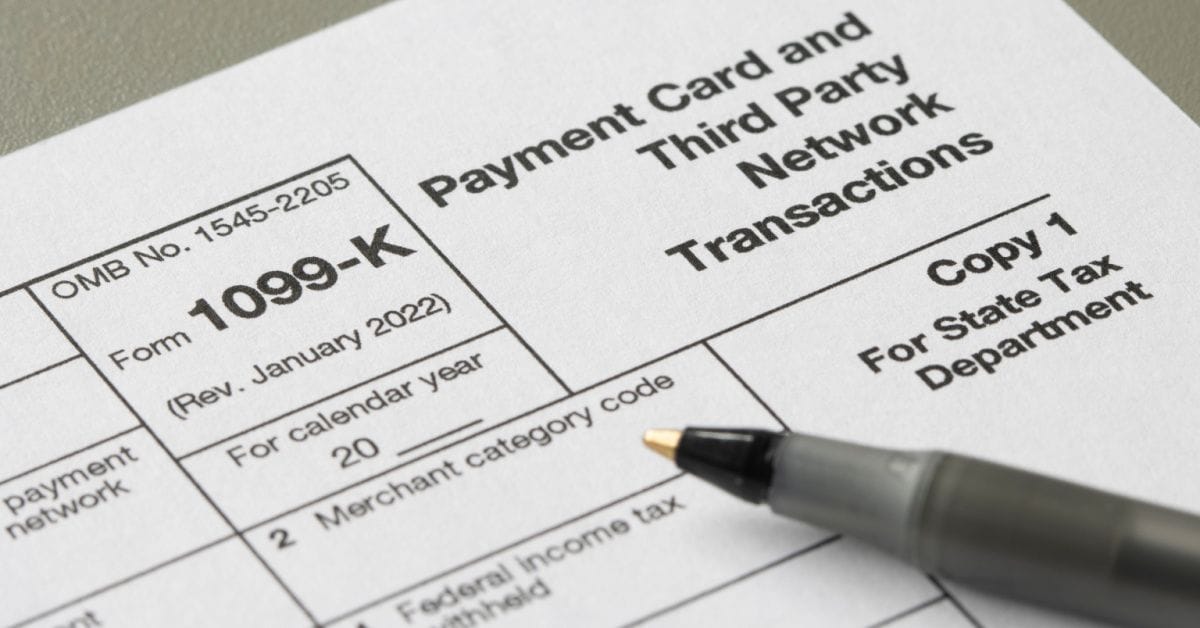IRS Provides Timeline For 1099-K Threshold Changes, Pushing $600 Limit Out To 2026
The IRS is providing some small relief to online marketplaces and sellers, confirming a phased step down approach to implementing lower 1099-K reporting requirements and setting thresholds at more than $5,000 in 2024; more than $2,500 in 2025; and more than $600 in calendar year 2026 and after.
WASHINGTON — The Internal Revenue Service today issued Notice 2024-85 providing transition relief for third-party settlement organizations (TPSOs), also known as payment apps and online marketplaces, regarding transactions during calendar years 2024 and 2025.
Under the guidance issued today, TPSOs will be required to report transactions when the amount of total payments for those transactions is more than $5,000 in 2024; more than $2,500 in 2025; and more than $600 in calendar year 2026 and after.
Notice 2024-85 also announces for calendar year 2024, that the IRS will not assert penalties under section 6651 or 6656 for a TPSO’s failure to withhold and pay backup withholding tax during the calendar year.
TPSOs that have performed backup withholding for a payee during calendar year 2024 must file a Form 945 and a Form 1099-K with the IRS and furnish a copy to the payee.
For calendar year 2025 and after, the IRS will assert penalties under section 6651 or 6656 for a TPSO’s failure to withhold and pay backup withholding tax.
Read full Notice 2024-85 here.
The $600 threshold was originally supposed to take effect for tax year 2022 but was delayed as efforts to increase it failed to make it into the final version of the FY23 Omnibus bill.
Final implementation of the $600 minimum was further delayed last year when the phased transition period was announced, leaving online sellers hopeful it may buy time for Congress to take action.
Online marketplaces like eBay and Etsy have been dedicating significant government relations resources to the issue, lobbying for reforms as they say the $600 threshold will significantly burden small businesses and casual consumer sellers on their platforms.
Do you occasionally sell things from your garage or closet on eBay? If so, those transactions may soon be put under a microscope by the IRS. Previously, only major sellers (completing hundreds of transactions totaling tens of thousands of dollars) would have their transactions automatically reported to the IRS.
Now, even a single sale over $600 – the new reporting threshold – could land you with a burdensome 1099-K tax form. And the change does not take into account the millions of individuals selling used or pre-owned items where there is no taxable event.
eBay believes that dropping the minimum threshold to $600 for issuing a 1099-K will cause confusion and over-reporting of non-taxable income for millions of Americans.
Congress should protect consumers and increase the reporting threshold for platforms enabling consumer sales of goods.
Of course these lobbying efforts are not entirely altruistic. Small business and consumer to consumer sellers are big business to marketplaces with billion of dollars in annual GMV - and if that inventory is no longer sold online due to the hassle of tax reporting, that means less sales (and less fees collected) for the platforms.
And that doesn't even get into the significant costs of overhead, compliance and reporting for the marketplaces when a larger portion of sellers on their sites fall within that threshold - cost those companies and their shareholders would of course rather not have to bear.
Do you think Congress should raise the 1099-K threshold again and if so, what amount would be fair? Let us know in the comments below!
























much too complicated now for a few pounds a year in sales
They just "killed the golden goose". I imported my 1500+ eBay items to there since it was free. Turned out just to be a lot of work for (maybe) 3 sales a month.
The total fees were higher there before this new $20 a month cost structure, even though they claimed otherwise. When one factors in the 3.49% + 49 cent PayPal processing fees so one can get paid, there went a good chunk of profit.
Now they have boosted their commission to 11%, and still claim that the cost to sell there is less than eBay's. And remember that this does not include payment processing. WHY?? Makes no sense at all.
On eBay, for $27.95 a month, I sell over 100 items there every 30-31 days. Makes ZERO SENSE to pay a site $20 to make just a couple of sales. Since they now allow 50 "free listings", I have trimmed my offerings back to just below that amount. Also had to raise all my prices accordingly to absorb the extra selling costs.
The people who run the show here obviously didn't realize that eBay sellers who imported their listings gave the site a great depth of product, which would attract more buyers. Now that will be gone, because NO ONE will pay them $20 monthly for little to no sales.
The site also has technical issues that they refuse to fix. It was a decent resource to enable the occasional sale, but they will soon be stacked onto the eCommerce trash heap of companies that THOUGHT they could compete with Amazon and eBay. Etsy may also suffer the same fate soon, as many sellers are also leaving their site due to high fees, website issues, and poor management.
Basic eComm rule here: When you do not carry any inventory, and sellers are solely responsible for supplying your site with the goods offered, DON'T BITE THE HAND WHICH FEEDS YOU!!!